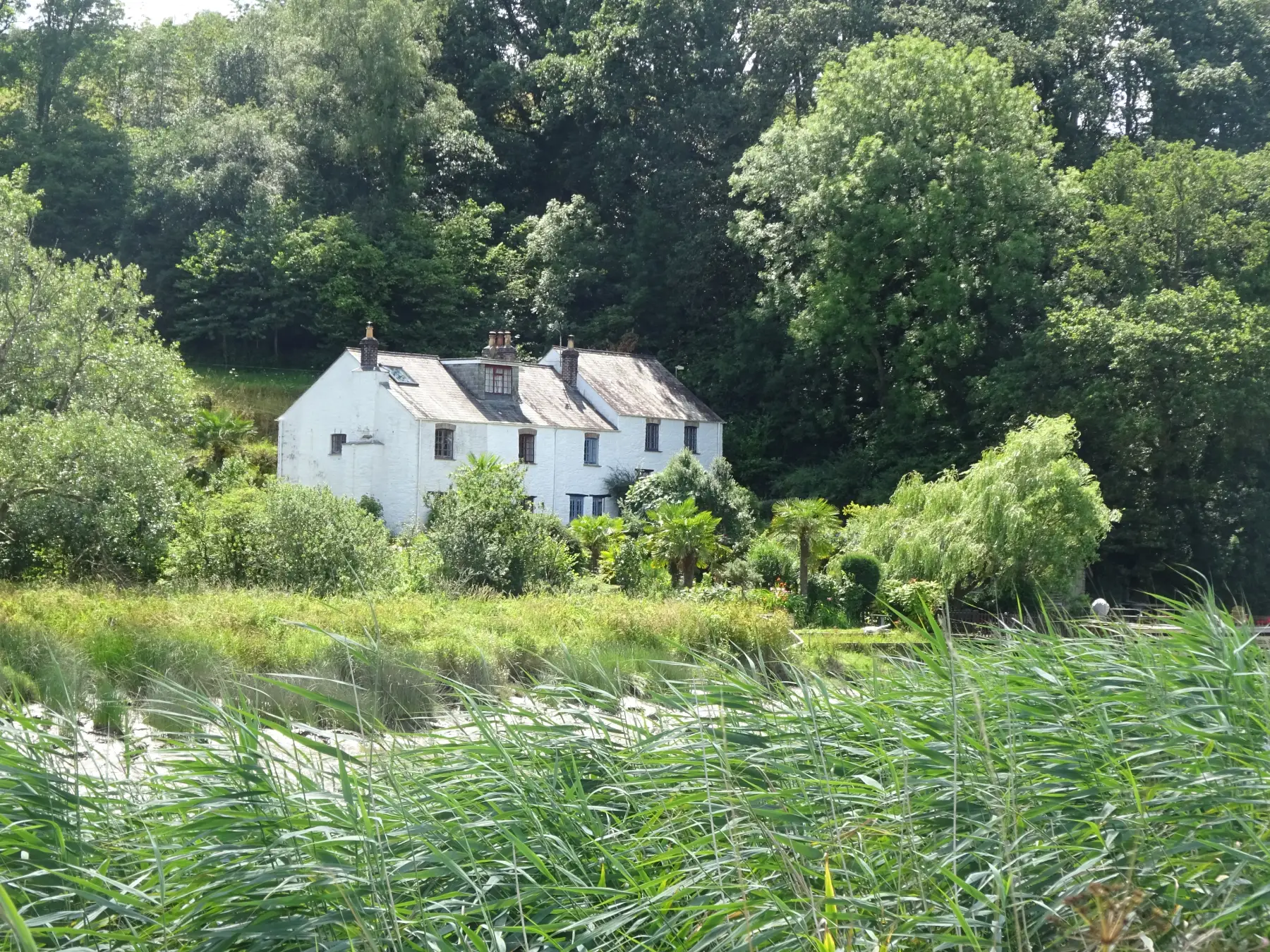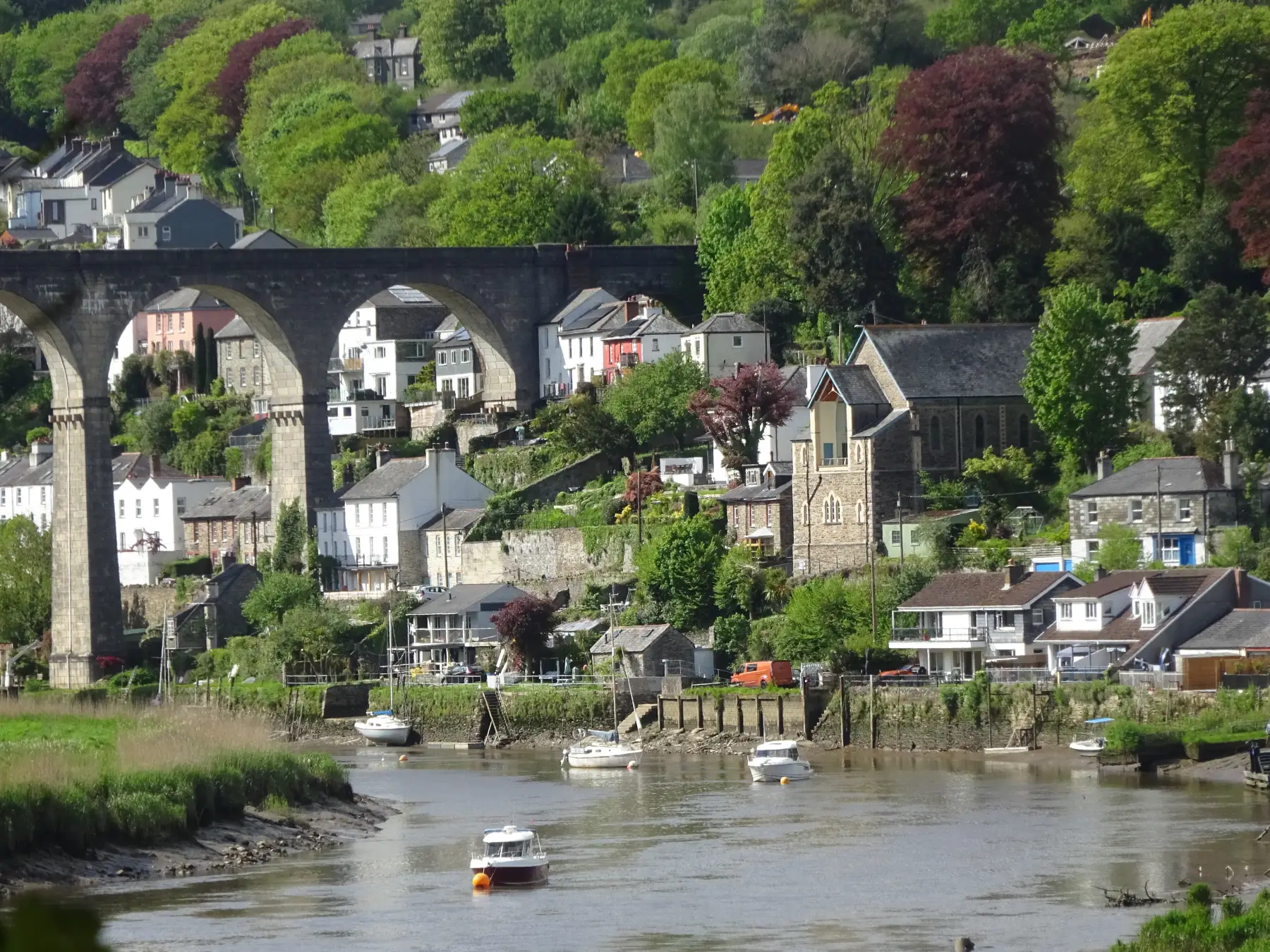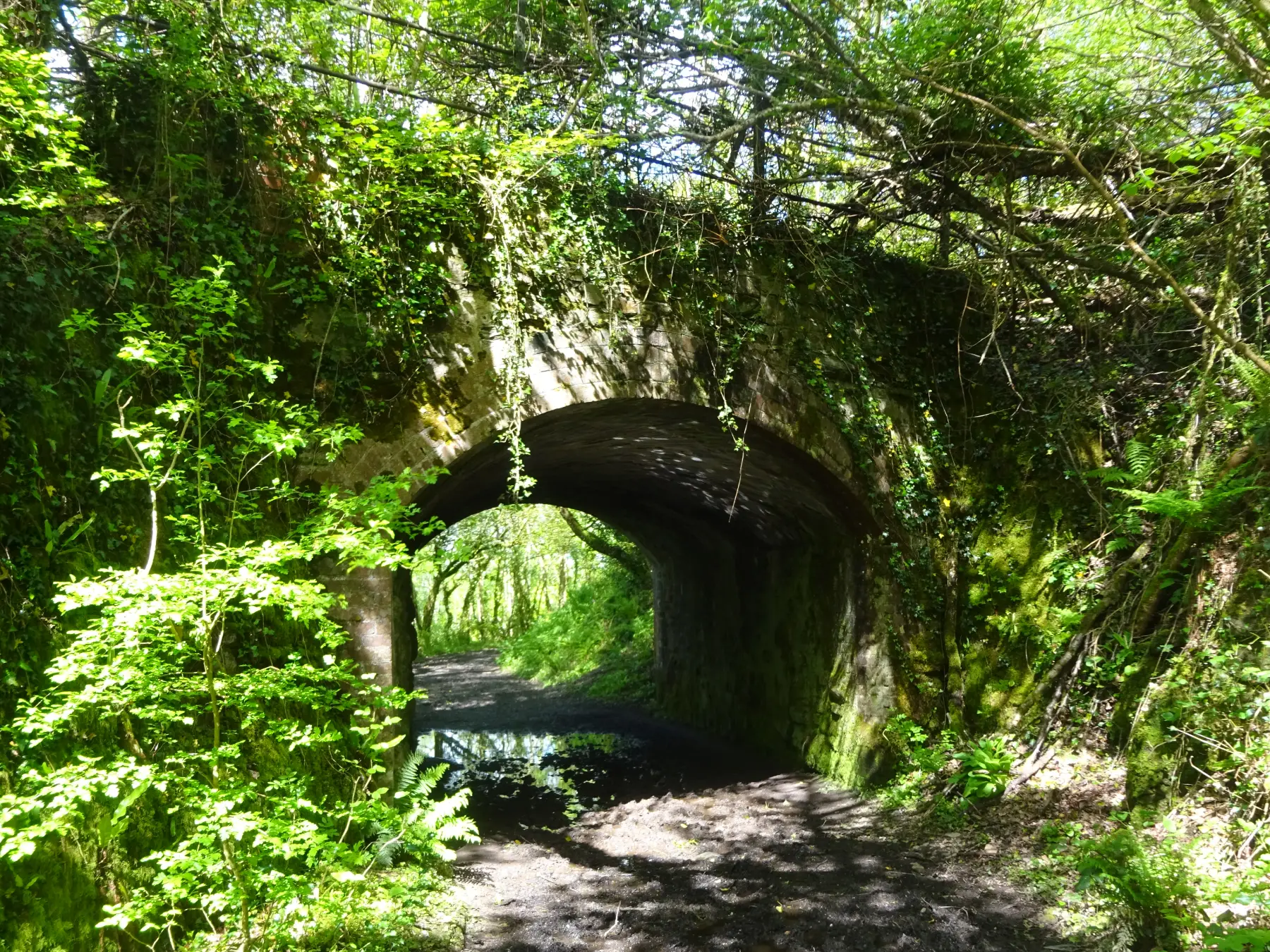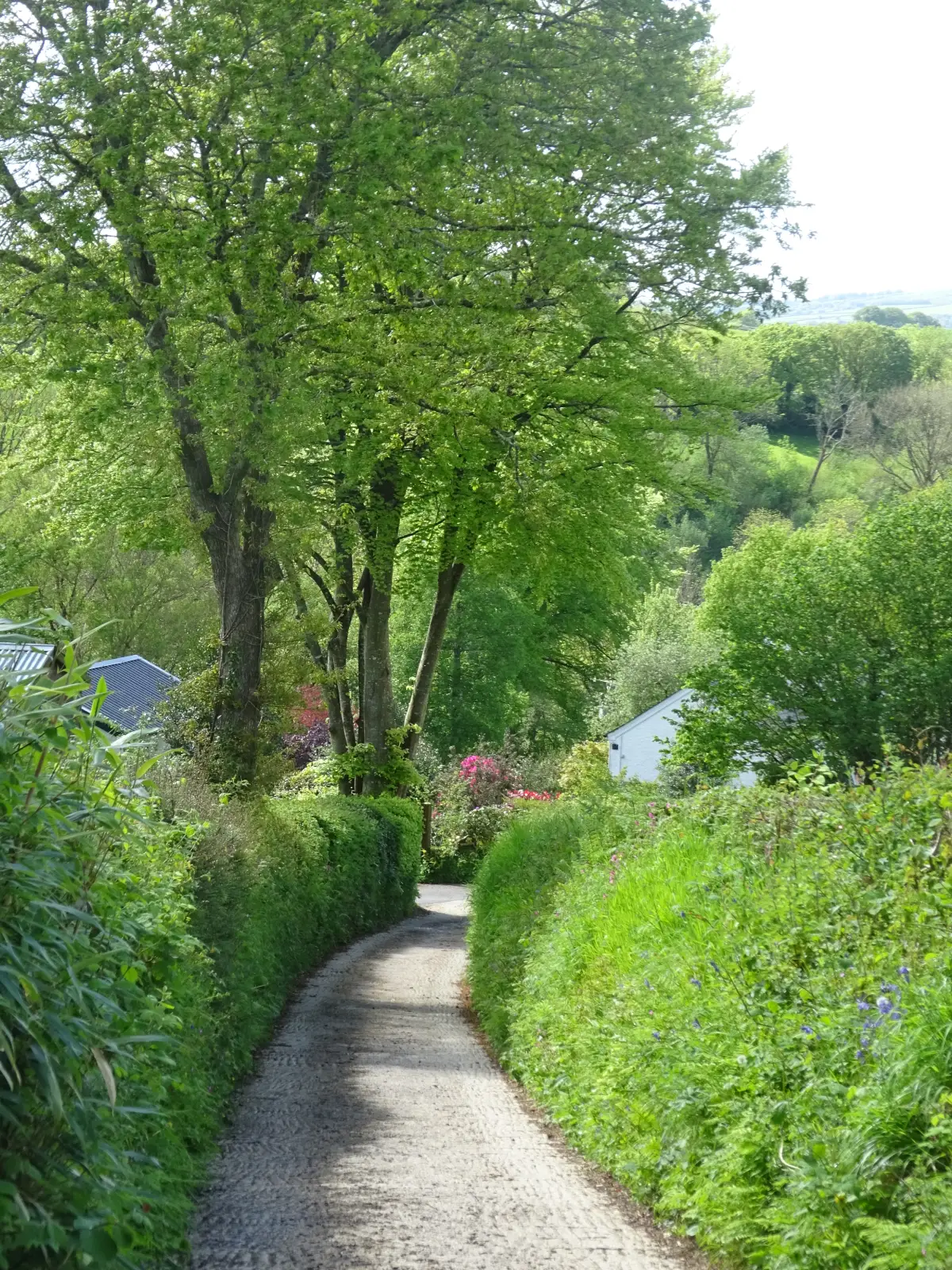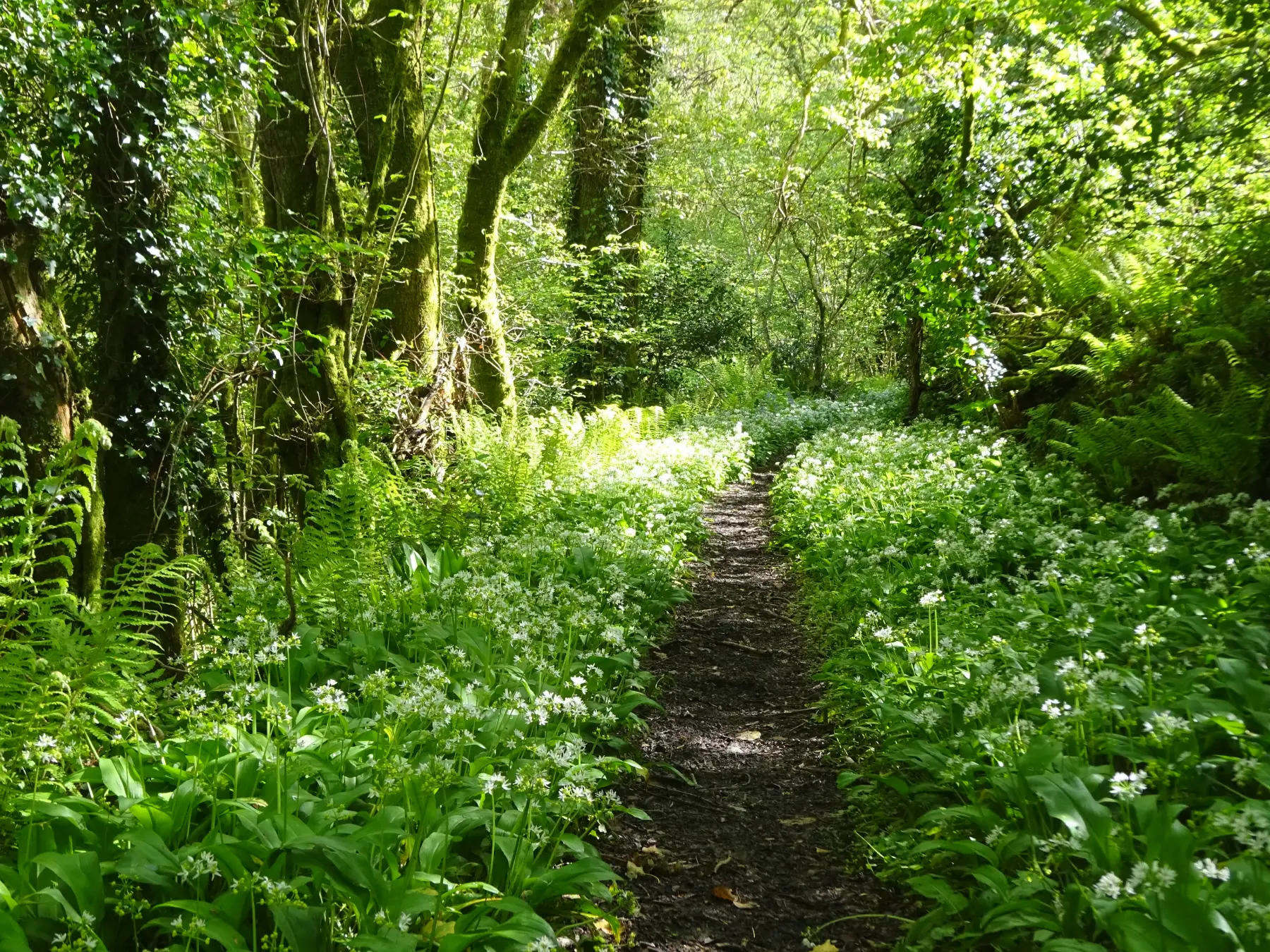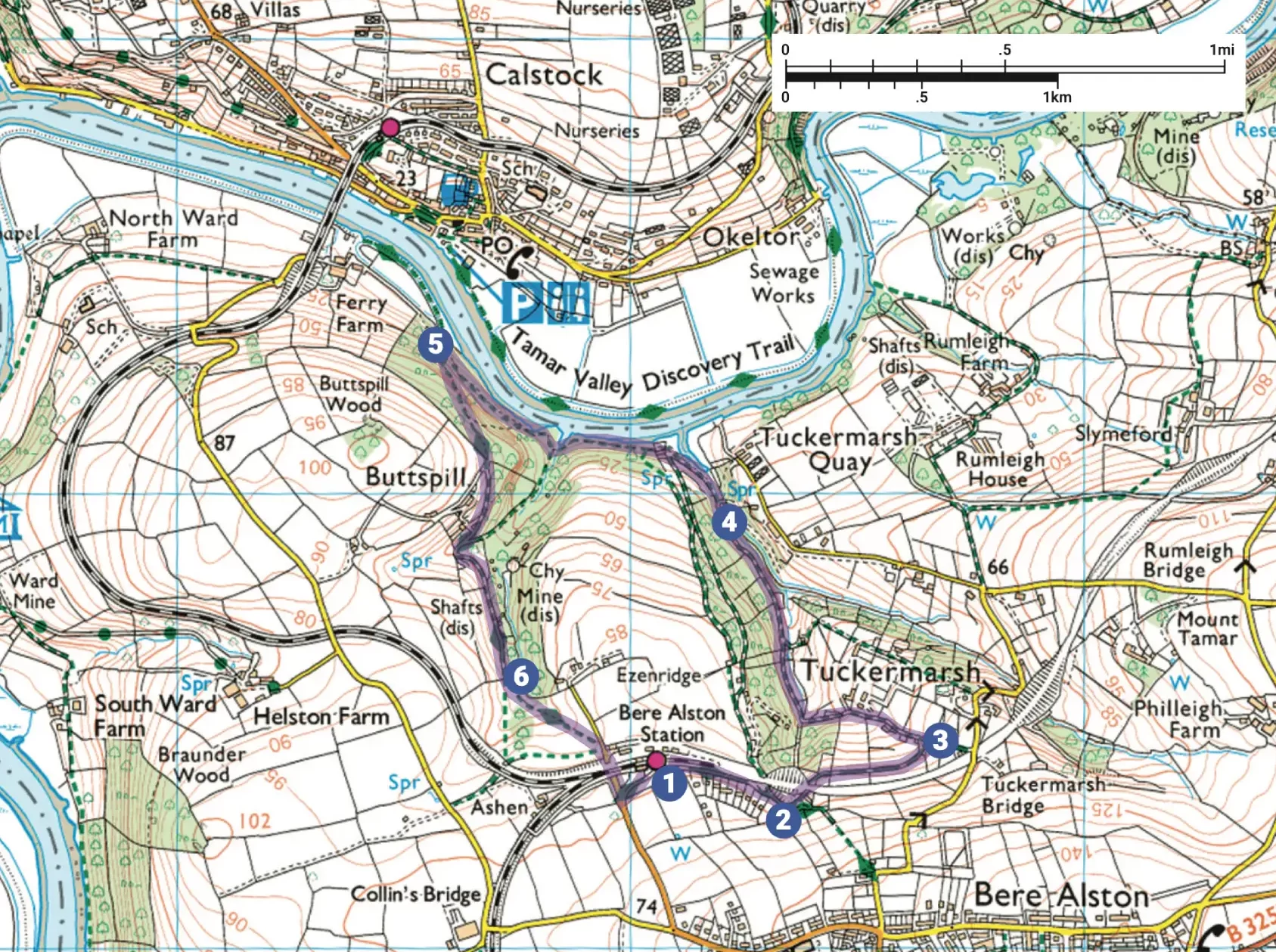Turn left, downhill, on a footpath track, between fields that once would have been flooded with daffodils. In 1984 there were more than 40 flower, fruit and vegetable farms in the Bere peninsula; in 2010 there were still five farms that sent away daffodils; now there is only one remaining daffodil exporting farm.
Stay on the main track, continually descending; where it bears right, look out for a footpath sign (on the right of the track) and bear left between fences, and cross a stream.
Follow the path down through beautiful woodland (between banks of wild garlic in springtime), above the ‘babbling brook’. Cross another stream under dense stands of laurel, and continue to descend gently, passing a footpath and bridge.

